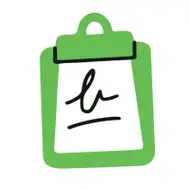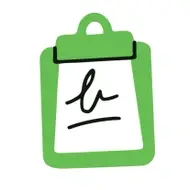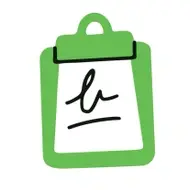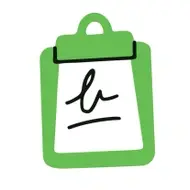Hire Impact | Tips for Interview Questions and Reference Checks

Welcome back to Hire Impact, Idealist’s three-part series on attracting, assessing, interviewing, and onboarding great candidates. While our first edition covered How to Attract and Screen Great Applicants, this second article will focus on getting the most out of candidate interviews and reference checks, and ensuring that your organization finds the best fit for their needs.
Tips for interview planning
Consider what qualities are most important
Start with an agreed-upon list of qualities that your organization generally seeks in candidates, such as: adaptable/flexible, strong communicator, ambitious, independent, or collaborative. From that list, hone in on a handful of qualities that this role requires, e.g. you may want a Director of Development who is ambitious.
Ask for context, not hypotheticals
Asking a candidate about specific experiences instead of theoretical possibilities will give you a clearer snapshot of what they think is important, in a real life context; this is often referred to as a behavioral interview method. For example, rather than asking what skills they think a leader should have, an even better question would be: “Describe a time when you took on a leadership role. What made you successful? What did you learn from the experience that you would or would not do again?” This shows that they understand what it takes to be a leader not only in theory, but in practice. You’ll see some of our favorite questions below.
Control for bias with process
Implicit bias can make its way into a hiring process whether we like it or not. Reduce bias by asking all candidates the same questions. Refer back to those desired qualities in a candidate and give numerical scores. Quantifying qualifications can help mitigate the effect of “like me” bias, which is when we feel more affinity for someone because we share characteristics or traits.
Use tasks to learn more about candidates
Whether in the application or interview stage, asking candidates to provide a sample or take a skills test can illuminate their candidacy with a real-life work product (keeping in mind that organizations can’t use that work later). These can be helpful tools to compare applicants and an effective predictor of future job performance. If you’re interviewing for a writer, it stands to reason that a great task might be a writing or editing assignment related to the kind of work your organization does.
Interview questions for hiring managers
Remote work-related questions
- “What have you learned about yourself and your work style?” Some folks may realize that working from home is a more natural and productive set-up for them, while others may have struggled with how to navigate the virtual work space—and for others, they might be completely new to remote work and unsure how to navigate this way of working. Nevertheless, this question offers interviewees an opportunity to reflect on what has (or has not) gone well, or what they imagine their strengths and shortcomings to be, and how to put that learning into practice.
- “How have you stayed connected to colleagues (or how will you)?” Hiring an applicant who will be onboarded remotely means you both need to know that they feel comfortable reaching out to colleagues to introduce themselves, ask questions, and mine historical knowledge.
Evergreen questions
- “How are you?” For some interviewees (especially those who are currently unemployed), asking how they are and how they’re feeling can be the first time somebody has asked them that question all day, or even all week. Starting off an interview a little more sensitively can go a long way creating a comfortable space.
- “What made you leave your last role?” or “Why are you looking to leave your current role?” Keep in mind that this question could have pandemic-related sensitivities. If the candidate lists their last employment as ending in March or April 2020, they might have been laid off because of the pandemic or had to leave the workforce to care for a loved one.
- “Can you describe what average job performance might look like for this role? How about outstanding job performance? Tell us about a time when you demonstrated one or two of the key attributes you name for outstanding job performance.” A candidate’s comprehension of their potential role can be assessed with this question, as well as which of their traits and their past experience might make them a strong performer.
- “Everyone likes collaboration, but tell us about a time when it didn’t work with colleagues. What happened? What did you learn about yourself as a collaborator?” The structure of this question takes the “I just love collaboration!” answer off the table, instead asking what the candidate learned from a difficult situation.
- “Describe a work environment that enabled you to do your best work. Describe one that wasn’t such a good fit for you.” Work setting––physical or otherwise––can impact performance. If the candidate needs lots of quiet, your open-plan office might be a challenge for them. This information probably won’t be the dealbreaker, but it’s good for candidates and hiring managers to understand what they’re getting into.
- “Tell me about a time when you had to navigate issues of identity, privilege, and/or inclusion. What did you do? What was the result? Would you do anything differently?” There isn’t one single lived experience. Knowing that your candidate understands this and how they’ve dealt with the intersections of identity and other concepts may help you understand the kind of colleague and thought partner they’ll be.
- “Describe a manager relationship/experience that worked well for you. Describe one that did not.” In this question scenario, you’ll ideally learn what traits work best (and don’t work) for this candidate. If they’re looking for a coach, and you’re a manager who enjoys mentorship, perhaps it’s meant to be!
- “If we spoke to your current manager, what are a few areas where they’d say you really excel? What might they say are a few areas of growth for you?” Ah: the dreaded “What are your strengths and weaknesses?” question. While you may hear “Sometimes I just work too hard!,” the structure of this question is meant to elucidate real feedback they’ve received.
- “Do you have any questions for us?” Don’t forget about this one! It can reveal how much preparation a candidate did in advance of the interview, or what is most important to them in their next role.
Tips for reference checks
So you’ve interviewed a slate of candidates and have hopefully settled on one to two finalists. Congrats! The next step is checking references.
Requesting specific references
We recommend requesting three references from each final candidate, in order to hear multiple perspectives on their experience and performance. You may want to specifically request that at least one reference is a manager, to provide insight from someone who oversaw them directly. Consider if there are others you’d like to hear from—such as people who have reported directly to the candidate—to learn about their leadership and management skills.
Reference logistics
On the logistics side, make sure to ask your candidate for an email address and a phone number for each reference. While we highly recommend speaking with references over the phone, it may be useful to reach out to folks via email first to schedule time and let them know how long the call might last; a 10-15 minute conversation should do the trick. Please note that we offer many sample questions below, and asking all of them would take much longer than 15 minutes!
Asking subtle, probing questions
Well-prepared candidates likely selected references that will only speak to the best of them. And that’s great! What hiring managers should look for are any subtle flags. We hope the questions below might help unearth any concerns, or confirm that your candidate really is a stellar performer. For now, at least, consider how the pandemic may be playing out in terms of a candidate’s tenure at a previous organization, how their work load might have changed, or how external factors (stress, illness, loss, and more) might have affected their performance.
Reference check questions
Context and background
Reference calls start with confirming who the reference is and what their relationship is to the candidate. Take time to learn about who this person is and how they have worked with the candidate in order to best understand and value their reflections and insights.
Here are some examples of questions to get the call started (for simplicity, we’ve chosen a fictional candidate named Lee):
- How long did you and Lee work together?
- In what context did you work with Lee?
- Could you confirm your current organization and title?
- What projects did you work on most closely with Lee?
Role and responsibilities
Asking specific questions is likely to bear more fruit than “Do you recommend Lee for this role?” Consider the characteristics you had in mind in the interview process when learning more about a candidate’s experience and determining how those may set them up for the role you’re hiring for. Some sample questions:
- What were Lee’s specific responsibilities when you worked with them? What do you feel were Lee’s biggest strengths as they relate to those responsibilities? What were the biggest challenges for Lee in that role, and how did they deal with those challenges?
- We’re considering Lee for [JOB TITLE] and they would be responsible for [RESPONSIBILITIES]. Do you think Lee could perform well in this role? Why or why not?
- In the role we’re hiring for, we are looking for someone who is [CHARACTERISTICS SUCH AS ADAPTABLE, ABLE TO WORK WELL IN A FAST-PACED ENVIRONMENT, ETC.]. How do you think that aligns or stretches Lee’s strengths and areas for development?
Working and leadership style
It’s quite informative for a hiring manager to hear about how a candidate gets their best work done and how they work with others. Here are some questions to dig into working and leadership styles:
- How would you describe Lee’s working style? Could you provide a couple of examples of how you’ve seen Lee’s working style in practice?
- What are things you’ve noticed that set Lee up to be able to do their best work?
- What are some things about Lee’s working style that you’d like to see them improve on?
- Can you provide an example of a time when Lee faced a challenge or a great deal of stress and how they handled that situation?
- If interviewing a former manager: What are pieces of advice that you have for how to best manage Lee?
Social and emotional intelligence
Reference calls are also an opportunity to learn more about how your candidate demonstrates emotional intelligence, the ability to identify and manage one’s own emotions as well as the emotions of others. Here are a few options to learn more about a candidate’s social and emotional intelligence:
- Did Lee have to work in collaboration with others to complete a project? If yes, were you able to get a sense of how they worked with peers/other staff/volunteers?
- In working with others either formally or informally, what are two of Lee’s strengths and two of Lee’s areas for development when it comes to handling conflict or unexpected changes?
Space for last thoughts
Asking if you missed anything can be a nice opportunity for your reference to share any last reflections, something else that came up for them in answering your questions, or an important insight that didn’t get addressed earlier. Some questions you might consider are:
- Is there anything I didn’t ask about Lee that you think I should know, or anything we didn’t get a chance to talk about?
- Any last thoughts you’d like to share about working with Lee?
Wrapping up
There’s nothing more important than learning as much as you can about candidates—and giving them the chance to learn more about you and your organization. Asking thoughtful, deliberate questions in interviews and reference checks, and always working to eliminate bias from your process will go a long way in ensuring that you’re bringing the right new voices to the table.
- **
If you found this guide helpful, be sure to check out the other two parts in our series, How to Attract and Screen Great Applicants, and Onboarding New Employees.






